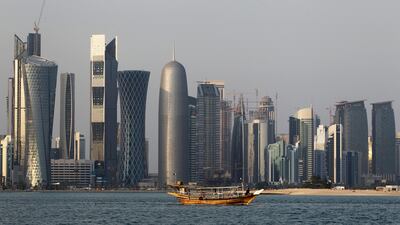As the Qatar crisis ticks closer to the two-month mark, two contrasting paths are being towed by the opposing sides.
On the one hand, the quartet of nations has consistently focused on the clear presentation of the root causes of the rift and the changes that Qatar needs to make in order for the dispute to be defused.
On the other side, Doha has preferred to obfuscate. Representatives of the Gulf state have also often resorted to shrill rhetoric, which tends to focus on the hurt and outrage they feel at the quartet’s boycott, rather than addressing the reasons behind the rupture. On one side of the dispute there is clarity of thought, on the other there is the cacophony of confusion.
As Yousef Al Otaiba, the UAE’s ambassador to Washington, said recently: “Our disagreement is about what the future of the Middle East should look like ... What we’ve seen Qatar do for the past 10 to 15 years is support groups like the Muslim Brotherhood, Hamas, Taliban, Islamist militias in Syria, Islamist militias in Libya — exactly the opposite direction we think our region needs to go.”
Mr Al Otaiba’s statements leave no room for doubt. Saudi Arabia, Egypt, the UAE and Bahrain have conclusive evidence of Qatar’s support for terror and extremism. This is the root cause of the dispute.
Compare this with the elaborate smokescreen thrown up by Qatar over Hajj. In a cynical attempt to politicise the pilgrimage, Qatar’s Ministry of Endowments and Islamic Affairs was reported to have suspended registration for its citizens to attend Hajj, despite Saudi Arabia making it clear that all Qatari residents would be welcomed this year, as they have been in previous years, as indeed are Muslims from around the world. There are no exceptions.
The quartet made further statements in Manama on Sunday. Once again, the same clarity of thought was on display. There is no siege or blockade, despite what Doha may say. The demands are also clear: stop supporting terrorism and commit to meaningful dialogue. Formal negotiation and settlement must replace the empty rhetoric and broken promises of Qatar’s past.
And so we wait for the response from Doha. And we worry that it is still not ready to accept responsibility for its actions or ready to follow a more virtuous path. There is concern, too, that in its pronouncements over Hajj, Doha is beginning to use the playbook of Tehran, the region’s most prominent disruptor. No good will come of using such tactics.

